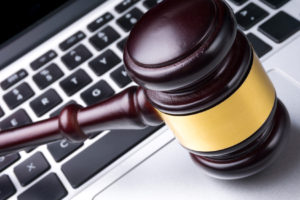Written By: JP Midgley, CEO, Avalon Document Services
In our line of work, we get to know a lot of attorneys. I like to think that I often have a good idea of how attorneys think in various situations (though making such assumptions is not always in my best interest, being married to an attorney and all).
One thing I do know is that attorneys are very careful when it comes to taking on cases in an area of practice with which they are not familiar.
 Which, I think, is also why the majority of attorneys we work with are very careful when eDiscovery pops up in a case that they are handling. As soon as they hear the words “litigation hold” or “electronically stored information”, we get a call… a sometimes panicked call… but, the point is, the attorneys know what they don’t know. And then we take over. We handle it. That’s what we do. We leave the lawyering to lawyers, and the lawyers leave the eDiscovery to us, the eDiscovery Geeks. [A badge we proudly wear.]
Which, I think, is also why the majority of attorneys we work with are very careful when eDiscovery pops up in a case that they are handling. As soon as they hear the words “litigation hold” or “electronically stored information”, we get a call… a sometimes panicked call… but, the point is, the attorneys know what they don’t know. And then we take over. We handle it. That’s what we do. We leave the lawyering to lawyers, and the lawyers leave the eDiscovery to us, the eDiscovery Geeks. [A badge we proudly wear.]
And, going back to my adoring wife (a self-proclaimed Ethics Geek), I think I know why this is. I won’t pretend by any stretch to be well-versed in attorney ethics rules, but the two of us have presented enough eDiscovery CLEs together that some of the Ethics Rules have now been burned to my memory (see honey, I do listen!). Here’s what I’ve learned:
- Attorneys have a duty of competence. RULE 1.1 of the New York Rules of Professional Conduct is about competence: “A lawyer should provide competent representation to a client. Competent representation requires the legal knowledge, skill, thoroughness and preparation reasonably necessary for the representation.” This doesn’t mean that you, as an attorney, need to know how to dig into the deep corners of a computer. It means, though, that attorneys should be familiar with their client’s electronically stored information (“ESI”) to at least some degree, and should be prepared to understand how to request, produce, and use ESI in litigation (even when it is through us).
- The new changes to the Federal Rules highlight another reason why attorneys need to be familiar with eDiscovery (or align themselves with a Geek who does). The new Federal Rule 26(b)(1)makes it even more clear (if it was not clear enough already in general discovery rules) that discovery needs to be proportional to the needs of the case and ensure the burden/expense does not outweigh the benefit. [See our blog on the changes to the Rules. ] So, this means that attorneys have to know what type of burden and expense may be implicated through their various eDiscovery demands. This is most likely hard to do if you have been completely out of the eDiscovery loop.
- There is also an entirely different set of standards that attorneys have to follow (which, admittedly, I had absolutely no idea even existed not long ago). Those are the New York Standards of Civility. Under these standards, lawyers have additional duties to other attorneys, litigants, and witnesses: “A lawyer should not use any aspect of the litigation process, including discovery and motion practice, as a means of harassment or for the purpose of unnecessarily prolonging litigation or increasing litigation expenses.” 22 NYCRR part 1200, Appendix A, IV. Having a grasp of eDiscovery – or aligning yourself with someone who does – helps attorneys meet these goals.
We can help you navigate the big wild world of eDiscovery. Or, if you don’t want to come to the Geeks, align yourself with another attorney who has been there, eDiscovered-that. In the end, you (and your clients) will be happy you did.
If you liked this blgo article, you might also like "Take You Geeks to Court" & Other Advice from the Federal Judges Panel on eDiscovery.
Download our free whitepaper to learn why simpler is better.





